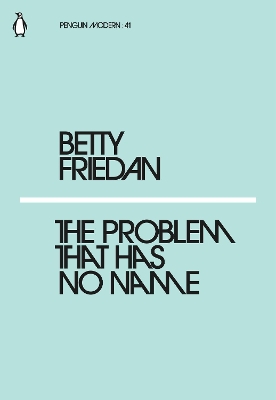Reviewed by clementine on
They're fascinating essays, and Friedan writes with such a compelling sense of urgency. So much has changed in society since The Feminine Mystique was written - it is now common and even expected for women to go to university and have careers - but there's still something poignant about the essays. The question now is not whether a life made up of chores and childrearing is fulfilling - it's whether women are better off now that we "have it all". It seems that women's happiness hasn't increased even as we gain rights. There is still a sense of ennui that seems to permeate womanhood. And, anecdotally, it seems that after second-wave feminism helped women become educated, skilled professionals, there is another period of regression. My mom's generation of women had kids in their 30s and kept their names when they got married - but a shocking number of my peers are having children in their early- to mid-twenties, and almost all of my married acquaintances have changed their last names. I'm not here to condemn them or say that these are inherently negative things, but it is interesting that the metrics by which we may measure feminist penetration of societal consciousness come in waves. So although the obligatory housewifery of Friedan's era isn't so relevant to our current context, the larger themes she's meditating on do still seem, to some degree, prescient and worth considering.
Reading updates
- Started reading
- 4 March, 2018: Finished reading
- 4 March, 2018: Reviewed
